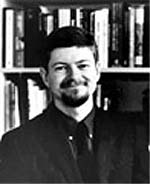
|
Media Matters
Justice Anthony Kennedy, in his majority opinion, stated not only that two men or two women should be allowed to enjoy sexual intimacy in the privacy of their home, but he also dismantled the legal and historical underpinnings of an opposite ruling that the court had issued in 1986 in Bowers v. Hardwick. In that earlier decision, the court upheld Georgia's anti-sodomy law. From a historical perspective, 17 years is a mere nanosecond, but enormous changes have taken place in that period. One of those changes has been an impressive increase in the body of scholarly work related to gay and lesbian studies, and it was that material that gave Kennedy and his five colleagues much of the basis for their revolutionary ruling. In Bowers, the majority of the justices wrote that because proscriptions against homosexual conduct "have ancient roots," any claims that such activities should be protected by the Constitution were "facetious." Kennedy's written opinion took issue with that assertion that governments have long sought to curb same-sex behavior. "In academic writings, and in many of the scholarly briefs filed to assist the Court in this case," he wrote, "there are fundamental criticisms of the historical premises relied upon by the majority and concurring opinion in Bowers." In the conclusion of a historical analysis that took up nearly half of his ruling, Kennedy wrote, "far from possessing 'ancient roots,' American laws targeting same-sex couples did not develop until the last third of the twentieth century." In other words, Kennedy was stating, though in the polite terms that jurists use, that what the Bowers majority thought it knew about gay history was, well, wrong. It was no accident that Kennedy relied so heavily on history in his landmark opinion. A group of 10 scholars of gay and lesbian history had filed a 25-page friend-of-the-court brief in support of legalizing sodomy.
First, while the gay scholars did not dispute that sodomy laws in the United States have a long history, they provided relevant context. Specifically, they pointed out that while the American colonies criminalized sodomy, these statutes were part of a large number of laws that prohibited virtually all sexual activity that took place outside of marriage or did not involve procreation. Most of those prohibitions-such as banning masturbation and access to contraceptives-were struck down years ago. Second, the scholarship that the 10 historians pointed to has illuminated the fact that, even though sodomy laws have existed for a long time, they have only recently-in historical terms-been enforced. That is, until about 50 years ago and the obsession of demonic FBI Director J. Edgar Hoover (again, "demonic" is my word; the Sodomy Ten would not use such a biased adjective-even though it's an accurate one), the state did not make much of an effort to pursue men who had sex with men or women who had sex with women. The importance of this point is that the "ancient roots" that the Bowers ruling spoke of actually, to a significant degree, only date back to the 1950s.
Although many people will disagree with my next statement, it can be argued that the historical errors that the justices made in the Bowers case were justified because, at that time, there was scant material on which to establish a constitutional right to sexual privacy for gay people. The field of gay history was still embryonic, marginal and generally distrusted. Then legions of gay historians began to amass the kind of high-quality scholarship that has allowed them and their field to gain the respect that it enjoys today-and that made Kennedy and his colleagues listen to the Sodomy Ten.
 That process has not been easy. Even after George Chauncey published his widely praised Yale University dissertation titled Gay New York: Urban Culture and the Making of a Gay Male World in 1989, it still took him another three years before he could land a job in academe.
That process has not been easy. Even after George Chauncey published his widely praised Yale University dissertation titled Gay New York: Urban Culture and the Making of a Gay Male World in 1989, it still took him another three years before he could land a job in academe.Gay history also has often been disparaged as "special interest studies" with little relevance to the broader flow of scholarship. Likewise, some critics have demeaned the work as merely part of a regrettable recent trend toward "political correctness." The news media have sometimes serves as obstructionists as well. Representative was a segment about gay studies that aired on the CBS news magazine 60 Minutes in 1998. As part of that story, Mike Wallace said, in the snide tone that he uses so often: "Some of what is being taught on college campuses today is for mature audiences only." But on June 26, 2003, the study of gay history took a huge leap forward, as a majority of the members of the nation's highest judicial body found sufficient merit in that scholarship to use it to help eradicate laws that, before that date, made it illegal for gay men and lesbians to make love to one another. In finding that the Texas anti-sodomy law violated vital liberties and privacy guaranteed by the due process clause of the 14th Amendment, the justices declared the law unconstitutional. While only 13 states still had sodomy laws, the decision nevertheless was enormously important. In writing for the majority, Kennedy used such powerful words as "transcendent" and "dignity" when referring to intimate same-sex relationships. And so, both the decision itself and the language chosen to articulate why it was made mark a dramatic turning point in the evolution of Gay America. The role that the Sodomy Ten played in helping that decision come about reasserts: History matters. |
 Gay historian John D'Emilio is getting credit for helping convince the Supreme Court to overturn the Texas ban on sodomy
Gay historian John D'Emilio is getting credit for helping convince the Supreme Court to overturn the Texas ban on sodomy  Professor George Chauncey
Professor George Chauncey  Estelle Freedman's book Intimate Matters: A History of Sexuality in America, which she co-authored with John D'Emilio, was noted by Justice Anthony Kennedy in his majority opinion in Lawrence v. Texas case overturning sodomy prohibition
Estelle Freedman's book Intimate Matters: A History of Sexuality in America, which she co-authored with John D'Emilio, was noted by Justice Anthony Kennedy in his majority opinion in Lawrence v. Texas case overturning sodomy prohibition